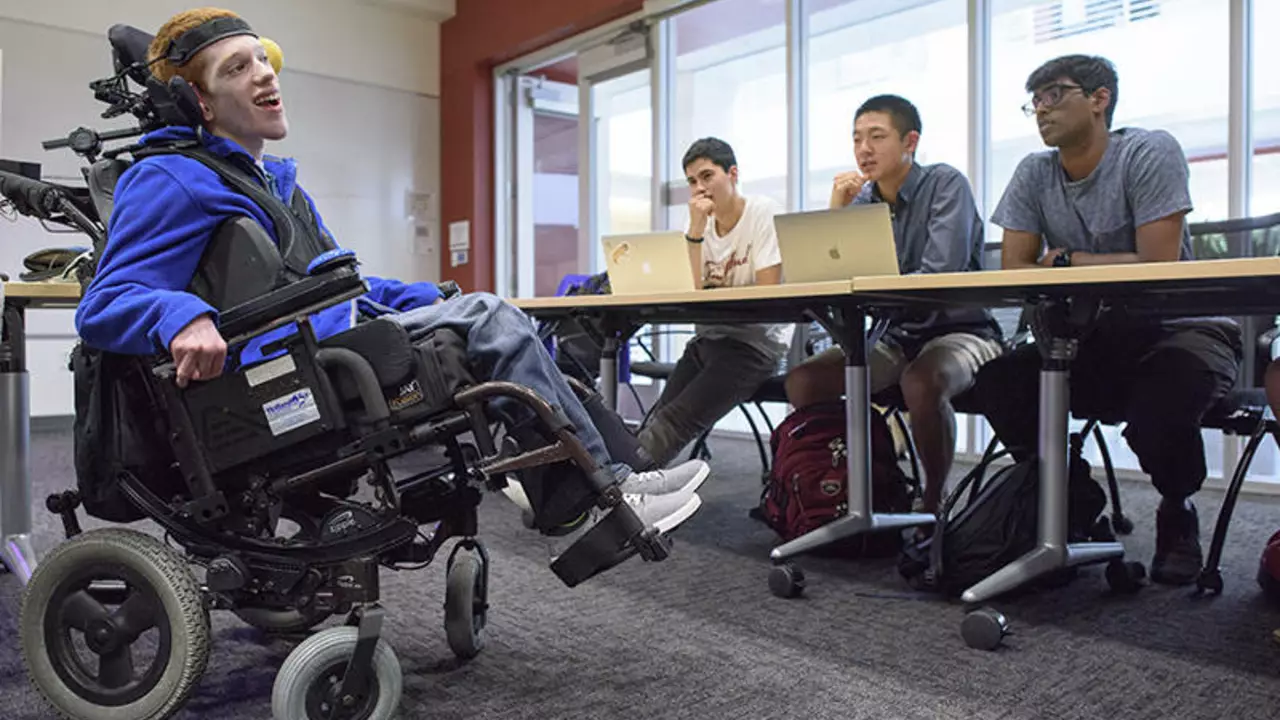Making Education Accessible - Improving opportunities for students with disabilities

Breaking Boundaries: Universal Access to Education
Hi, I’m Danilo. If there’s a single aspiration I hold close, it’s the dream of universally accessible education. Think about school as childhood broccoli: not always loved, but undoubtedly beneficial. Much like broccoli, everyone deserves a fair serving of education, irrespective of their backgrounds or challenges. My journey commenced in a typical classroom setting, surrounded by remarkable individuals. Our main topic of discussion? Ensuring accessibility and inclusivity for disabled students within the education domain.
Addressing the Obvious: Prevailing Educational Inaccessibility
It’s evident: traditional education systems aren’t tailor-made for students with disabilities. In my school days, students moved like synchronized units. However, the beauty of reality is that each student is akin to a unique musical note in a grand symphony.
One of the most tangible challenges is architectural accessibility. Picture schools without ramps, restrooms not customized for students who use wheelchairs, or elevated lab stations inaccessible to many. Instead of feeling included, such students grapple with their surroundings daily. This recalls memories of our Saint Bernard, Moose, who once had a leg injury. Witnessing his struggle in familiar terrain underscored the significance of accommodating diverse needs.
Embracing Modern Solutions: Curriculum Adaptations and Tech Innovations
For disabled students, a conventional curriculum can resemble a maze. For example, students with visual impairments or dyslexia might not tap into the full potential of mainstream resources. But here’s the silver lining: a realm brimming with cutting-edge assistive technology is revolutionizing accessibility. Think text-to-speech applications, ergonomic keyboards, reimagined textbooks, and the like. Essentially, these are the educational equivalent of superhero tools, and everyone loves a nifty tool, right?
Nurturing the Nurturers: Equipping Teachers for Inclusive Learning
While teachers are the silent pillars of society, they aren’t omnipotent. They crave guidance and resources. Supplying educators with insights on tailoring lessons and fostering an inclusive ambiance can bridge the gap. This might be the difference between students feeling alienated and acknowledged and understood.
Crafting a Compassionate Culture: Promoting Empathy and Awareness
Prejudices aren’t innate; they’re acquired traits. Drawing from personal experience, my wife, Hayley, and I embarked on a mission to acclimate our ferret Glimmer to Moose, despite their contrasting sizes. Analogously, cultivating a school culture underpinned by understanding and empathy is pivotal. An emphasis on enlightening students about varying disabilities and instilling respect can spearhead change akin to other pivotal societal transformations.
Policy and Progress: Could Legislative Action Usher in Inclusivity?
When education is deemed a cardinal right, shouldn’t inclusive education fall within the same purview? Enacting laws and policies can be a potent catalyst, spearheading alterations in schools globally. This encompasses revamping infrastructure, tweaking the curriculum, hiring adept professionals, and offering assistive devices. Achieving educational equity is about leveling the playing field for all.
A Collective Endeavor: Tapping into Community Resources
The timeless adage, “It takes a village to nurture a child,” remains pertinent. Education is a collective mission intertwined with myriad stakeholders. Parents, local bodies, official entities, and students converge to sculpt an environment that champions accessibility. Here’s a perspective: view disability not as an impediment but as a distinctive lens to perceive the world.
In essence, actualizing accessible education for disabled students hinges on concerted commitment. Our roadmap is lucid, from infrastructure enhancements and technological leaps to empowering educators, nurturing empathy, reasonable policies, and community engagement. And to weave in a final thought: shouldn’t everyone savor the nourishment of educational broccoli? And if you ever need thesis help online, remember that accessibility extends to resources, too!
- August 16, 2023
- Danilo Freemont
- 0 Comments
- Permalink




